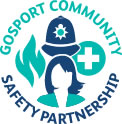Door to door sales scams
There has been a reported increase in door to door sales scams in the area. Scams can take many forms, including:
- Convincing you to pay for goods or services that are overpriced, poor quality or not carried out. Often the work is not necessary.
- Pressuring to make a quick decision and asking for upfront payment.
- Using phoney consumer surveys to get information.
- Asking you to sign unfair contracts or donate to bogus charities.
You can protect yourself by:
- Ask for identification before letting anyone you don’t know into your house. Call the company to check if you are unsure by finding the number on an official website and not the back of the ID card.
- Don’t sign on the spot. Get at least three written quotes to ensure you’re not being ripped off.
- Speak to a friend or family member or Citizen’s Advice if you are in doubt.
- For more details please see the Action Fraud website.
Stop, Hang up, Call 159 – #StopScamsUK
159 is a free, secure hotline powered by #StopScamsUK which connects you directly to your bank to check if your call is legitimate or not. 160,000 calls have been made to the service since launching in September 2021.
Check to see if your bank is part of the service: 159 — Stop Scams UK
Warning on Energy Rebates scams
Action Fraud is warning the public about a rise in reports relating to fake emails claiming to be from Ofgem.
The emails state that the recipient is due a rebate payment as part of a government scheme with links for the recipient to follow to apply for the rebate. These links lead to malicious websites designed to steal personal and financial information.
If you have any doubts about a message, contact the organisation directly. Don’t use the numbers or address in the message – use the details from their official website. Forward suspicious emails to report@phishing.gov.uk


